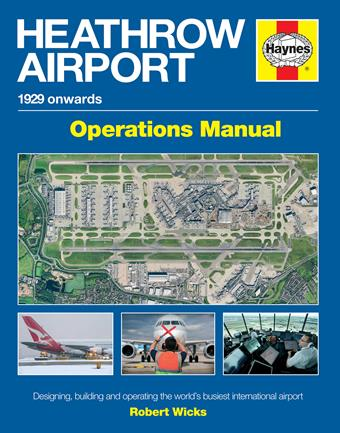The Haynes manual for Heathrow Airport is launched
Links on Head for Points may support the site by paying a commission. See here for all partner links.
Haynes, the book brand best known for its car maintenance manuals, has gone under the hood of a far bigger beast – Heathrow Airport!
Keeping Heathrow running is, of course, an astonishing operation which most of us take for granted. You are looking at an airport which handles 70 million people per year, employs 76000 people and handles 1400 takes offs and landings each day.
Apparently, each A380 departure from Heathrow has been loaded with 35,000 individual items, if you count right down to the last teaspoon.
To quote from the PR spiel:
In the Heathrow Airport Manual, author Robert Wicks has examined every element of the airport from runway construction and maintenance, to the complex airspace around London and how the airport deals with emergencies. Most importantly, the book reflects on the role Heathrow has played in the nation’s success over the past 70 years and the importance of global connections to the UK’s future.
Written with the full co-operation of Heathrow, NATS and the International Air Transport Association (IATA), the manual is the first of its kind and provides unprecedented insight and access to every aspect of the airport.
With more than 250 colour photographs and technical illustrations, this book brings together the challenges of daily operations at the world’s busiest international airport.
Christmas is still quite a way away, but it may make a decent gift for the airline fanatic in your life (which is probably yourself, if we’re honest). It sells for £21.99, although Amazon has it for £14.73.




 Rob
Rob 





Comments (14)